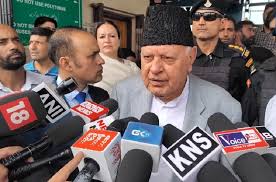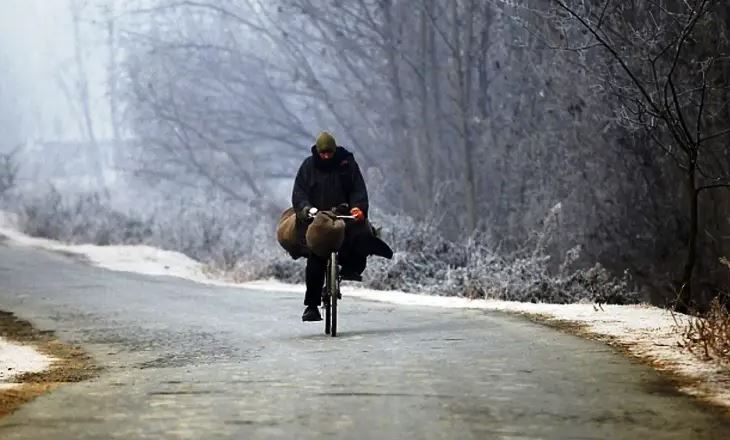Farooq Abdullah Voices Concerns Over Safety of Muslims in India
Srinagar, December 3, 2024 – After returning from his pilgrimage to Haj, Dr. Farooq Abdullah, President of the Jammu and Kashmir National Conference (JKNC), has expressed deep concerns over the safety and security of Muslims in India. In a candid conversation, he highlighted the growing sense of insecurity among the Muslim community and called on the government to address these issues urgently.
A Growing Sense of Insecurity Dr. Abdullah did not mince words when discussing the current state of affairs. “There is no doubt that Muslims are feeling unsafe,” he stated. His remarks come in the wake of a recent survey of religious places, which has further fueled the anxiety within the community. “I will ask the government of India to stop that. 24 crore Muslims cannot be thrown into the ocean. They should treat Muslims equally; there is no discrimination based on religion in our constitution. They should remember that. If they destroy the Constitution, where will India remain?” he questioned.
A Call for Equality Dr. Abdullah’s comments underscore the need for equal treatment of all citizens, irrespective of their religious beliefs. He emphasized that the Indian Constitution guarantees equality and non-discrimination, and any deviation from these principles would be detrimental to the nation’s fabric. “The government should treat Muslims equally,” he reiterated, urging the authorities to uphold the constitutional values that form the bedrock of Indian democracy.
Reflecting on Article 370 Reflecting on his tenure as the Chief Minister of Jammu and Kashmir, Dr. Abdullah spoke about his efforts to rehabilitate Kashmiri Pandits during the period when Article 370 was in place. “When I was the CM and when Article 370 was there, I tried to rehabilitate them (Kashmiri Pandits) but the situation was bad those days,” he recalled. He stressed that the decision for Kashmiri Pandits to return lies with them, and the community remains welcome. “Who stops Kashmiri Pandits from coming here? It’s their decision when they want to come. Our hearts are open for them,” he added.
The Importance of Unity Dr. Abdullah’s statements highlight the importance of unity and inclusivity in addressing the challenges faced by different communities in India. He called for a collective effort to ensure that all citizens feel safe and secure, regardless of their religious affiliations. “If they destroy the Constitution, where will India remain?” he asked, emphasizing the need to preserve the nation’s democratic values.
A Plea for Action As the leader of the JKNC, Dr. Abdullah’s plea for action is a call to the government to take concrete steps to address the concerns of the Muslim community. His remarks serve as a reminder of the importance of upholding the principles of equality and non-discrimination, which are enshrined in the Indian Constitution.
Detailed Exploration of the Issue
Historical Context The sense of insecurity among Muslims in India is not a new phenomenon. Over the years, various incidents and policies have contributed to the growing anxiety within the community. The recent survey of religious places has only added to these concerns, highlighting the need for a more inclusive approach to governance.
Impact on Daily Life The feeling of insecurity has a significant impact on the daily lives of Muslims in India. It affects their sense of belonging and their ability to participate fully in the social, economic, and political life of the country. This sense of alienation can have far-reaching consequences, not just for the community but for the nation as a whole.
Voices of the Affected Many Muslims across India have voiced their concerns over the growing sense of insecurity. “We feel like second-class citizens in our own country,” said Ayesha Khan, a resident of Delhi. “The government needs to take our concerns seriously and ensure that we are treated equally.”
The Role of the Government The government’s role in addressing these concerns is crucial. It needs to take proactive steps to ensure that all citizens, regardless of their religious beliefs, feel safe and secure. This includes addressing any policies or practices that may contribute to the sense of insecurity and taking concrete steps to promote inclusivity and equality.
Financial and Social Implications The sense of insecurity among Muslims can have significant financial and social implications. It can affect their ability to access education, employment, and other opportunities, leading to economic marginalization. Socially, it can lead to increased tensions and divisions within the community, further exacerbating the challenges faced by the nation.
Official Statements and Proposed Solutions Dr. Abdullah’s statements are a call to action for the government to address these concerns. He has proposed that the government take concrete steps to ensure the safety and security of Muslims and to promote inclusivity and equality. This includes upholding the principles of the Indian Constitution and ensuring that all citizens are treated equally.
Looking Forward As India moves forward, it is crucial to address the concerns of the Muslim community and ensure that they feel safe and secure. This requires a collective effort from the government, civil society, and the community itself. By working together, it is possible to create a more inclusive and equitable society where all citizens can thrive.



